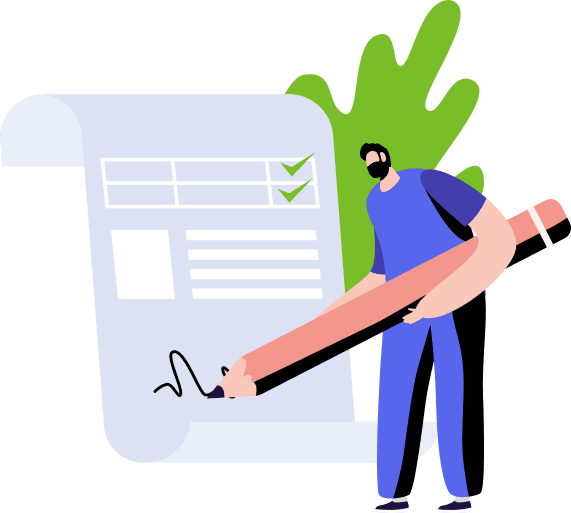
Integrate with Baselane banking to get instant and precise transaction data. Forget about lost transactions, re-syncing external accounts that get disconnected, and data lags. Accurately categorize your transactions with over 120 real estate specific categories and sub-categories based on Schedule E. Tenants can easily submit any requests from the tenant portal, and you can track, prioritize, and manage all maintenance tasks with an easy-to-follow paper trail.
Tenant Reconciliation

A bank sync matches and compares the transactions from the bank to those in the software which allows you to update transactions missing details and locate errors and omissions. The software then marks transactions to a ‘cleared’ status which confirms that the financial institution has processed the transaction. With everything in one place, you’ll stay organized and will no longer have to track down a year’s worth of transactions come tax season.
Best Rental Property Accounting Software 2024 update
Preparing yourself for tax season will help you simplify your tax return filing and maximize the benefits available to rental property investors. It’s important to maintain good records in order to track the financial performance of your rental investment. With accurate financial statements, you’ll always be prepared in case of an audit. Along with income, landlords should track expenses related to buying, operating, and maintaining the property. For example, you can deduct mortgage interest, repairs and improvements, property taxes, business-related travel expenses, and other operating costs as business expenses. This record keeping also helps when you want to calculate performance metrics for your property.
Accounting Best Practices for Emerging Property Managers
You’ll be able to access all the data you need to file your taxes, provide vendors with 1099-MISC forms, and give owners important reports for their tax needs. While no real estate investor wants to be audited, it’s best to be prepared for the worst case scenario. That means keeping all receipts for all expenses — especially those higher than $75 on a single receipt. Store your receipts digitally by scanning or taking a photo for easy access. The CapEx Schedule report lists all of the planned or actual capital retained earnings balance sheet expenditures for a specific property or portfolio of properties over a certain period of time. Capital expenditures refer to the funds that are used to acquire, improve, or extend the life of a property.
- Along with accounting, Azibo offers free solutions for rent collection, banking, insurance, loans, and other property management tools.
- Azibo enables you to add contact details (for vendors and tenants) and other notes to transactions for you and your CPA to reference.
- Having access to all your bank and credit card statements, mortgage statements, income and expenses online makes filing your taxes easier every year.
- And with the time-saving advantage of creating a seamless accounting system, these tools will easily fit into your business’s operating expenses, starting at just $35/mth.
- Programs like Excel, Numbers, Google Sheets, and OpenOffice can be used to create a basic real estate bookkeeping system to track income and expenses.
Built-in banking: Manage and grow your money while keeping tabs on expenses and how much you’re spending
Journal entries are the individual financial transactions that are recorded in the general ledger. They are used to track all financial activity related to a property, including revenue, expenses, assets, liabilities, and equity. Each journal entry typically includes a date, a description of the transaction, and the amount of the transaction. The entries are then categorized Food Truck Accounting into various accounts, such as cash, accounts payable, rent revenue, and so on. Each transaction will have at least one debit and one credit entry, which will be recorded in different accounts in the general ledger. For emerging property managers, learning the basics of property management accounting is the key to running a smooth, profitable rental operation.
- Some are designed specifically for real estate accounting, some are not.
- It’s focused on providing accounting solutions but is missing key rental property finance features, including rent tracking, automatic late fees, and real estate-specific reporting.
- Having a good rental property accounting software will make this easier, but there’s more you can do to ensure accurate income tracking without the hassle.
- Landlord Studio helps you create a more profitable rental portfolio directly from your desktop or mobile.
- Property managers are additionally tasked with adhering to trust account guidelines and properly handling owner funds.
- Keeping a shoebox full of receipts is no longer necessary or practical for busy rental property owners who want to run an effective business.
Keep in mind that a security deposit used as a final rent payment is considered advance rent. Stessa helps both novice and sophisticated investors make informed decisions about their property portfolio. We’ll send payment reminders, charge late fees, make deposits, and do all the heavy lifting while you stay blissfully above the fray. It’s almost like having a property manager collect the rent…but you get to keep it all. Swap piles of paperwork and outdated spreadsheets for a secured and automated system that organizes your transactions with precision. Stessa’s automated data connections and single-entry accounting helps keep everything simple and easy to understand.
It includes accounts for revenues, expenses, assets, liabilities, and equity. The general ledger is used to track the financial performance of a property, including revenue and expenses, as well as to prepare financial statements such as the balance sheet and income statement. It also serves as a source of information for decision making and budgeting. Transactions are recorded in landlord bookkeeping the general ledger in real time, allowing for up-to-date financial information to be available at any point in time. There are so many tools out there that can help you be better at rental property accounting.
- Whichever method you choose, the important thing is to be consistent in how you track your income and expenses.
- Track income and expenses seamlessly, draft leases, screen tenants and collect rent online, simplify tax time, and use real-time dashboards to manage smarter and faster.
- You may opt to use QuickBooks for rental property accounting but might be intrigued by the additional features rental software offers beyond just accounting tools.
- Swap piles of paperwork and outdated spreadsheets for a secured and automated system that organizes your transactions with precision.
- It also includes any capital expenditures, such as renovations or repairs, that were made during the period.
- It’s also the easiest way to stay organized and simplify your reconciliation tasks.
Final Words: Rental Property Accounting

Understanding how each transaction can affect your investment is extremely beneficial in making plans and decisions. You also need to analyze the health of your real estate investments to gauge their profitability in a fluctuating housing market. Track income and expenses seamlessly, draft leases, screen tenants and collect rent online, simplify tax time, and use real-time dashboards to manage smarter and faster. Additionally, accurate records can be helpful if you ever have any legal problems with your tenants. Finally, keeping track of your income and expenses will also make it easier to file your taxes at the end of the year.
Schedule E reporting

Lastly, good rental property bookkeeping simply makes good business sense and can give you a better understanding of your overall financial picture. For one, you could end up owing taxes on income that you never actually received. You could also miss out on important deductions that could save you money come tax time. Not to mention, if you ever need to borrow money from a bank or other lender, they’re likely to request copies of your financial records. Schedule E is a form that is used to report supplemental income and loss from rentals, among other things. The form includes information such as the rental income, expenses, and mortgage interest paid on the property.

Leave a Reply